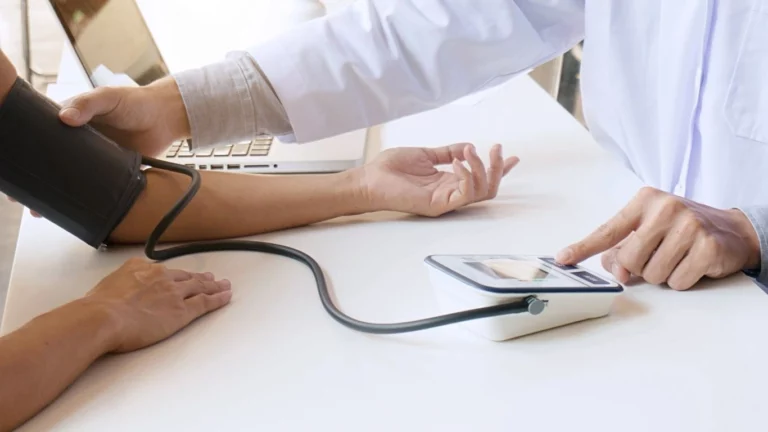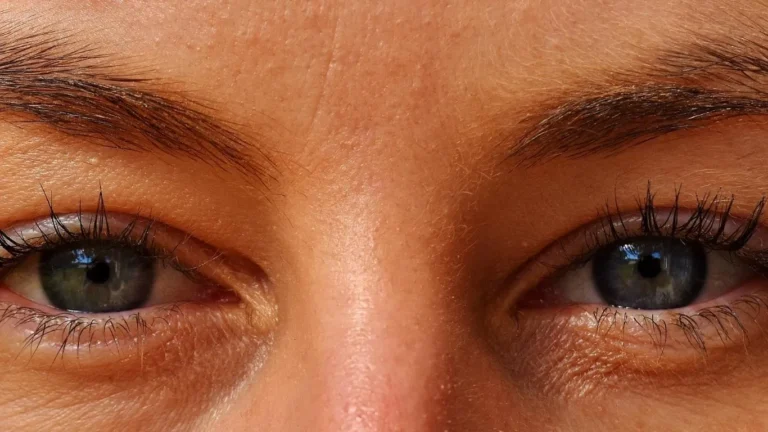Can a Low-Fat Diet Really Help GERD? Discover the Truth!
Can a low-fat diet help GERD? Oh, I get this question all the time. As someone who has spent years diving deep into digestive health, I’ve seen firsthand how diet impacts acid reflux. If you’ve ever felt that burning sensation creeping up your chest after a heavy meal, you’re not alone. GERD, or gastroesophageal reflux disease, is incredibly common, and what you eat can make all the difference. In this article, I’ll break down the science, sprinkle in some real-life experience, and help you figure out whether cutting fat from your diet could be your ticket to relief.
Understanding GERD and How Diet Affects It

Before we dive into the low-fat diet aspect, let’s get a quick refresher on what GERD actually is. GERD occurs when stomach acid repeatedly flows back into the esophagus, causing irritation. That awful burning sensation, the sour taste in your mouth, the nighttime coughing—yep, that’s GERD. It’s usually due to a weakened lower esophageal sphincter (LES), the muscle that’s supposed to keep acid in your stomach where it belongs.
Now, where does diet fit in? Well, some foods relax the LES, making reflux worse, while others help keep things in check. Fatty foods, in particular, have been flagged as a major trigger. But does that mean cutting fat is the magic fix? Let’s dig deeper.
Can a Low-Fat Diet Help GERD?

Alright, here’s where things get interesting. Many GERD sufferers (myself included, once upon a time) notice that greasy, fried, or high-fat meals send their symptoms into overdrive. That’s because fatty foods tend to:
- Relax the LES, making acid reflux more likely.
- Slow down digestion, keeping food (and acid) in your stomach longer.
- Increase stomach pressure, pushing acid upward.
So, the logic follows: if fat is a problem, reducing it should help, right? In many cases, yes! But here’s the catch—not all fats are evil. You don’t want to cut fat entirely; instead, it’s about choosing the right kinds of fats and keeping portions in check.
Which Fats Are the Worst for GERD?
If you’re dealing with acid reflux, you’ll want to steer clear of:
- Fried foods – Think French fries, fried chicken, and anything dunked in oil.
- Fast food – Burgers, pizza, and anything loaded with processed fats.
- Fatty meats – Bacon, sausage, and high-fat cuts of beef.
- Full-fat dairy – Cream, whole milk, butter, and heavy cheese.
- Oily dressings & sauces – Ranch, mayonnaise, and creamy sauces can be sneaky triggers.
If any of these are part of your regular diet and you’re struggling with GERD, it might be time to experiment with cutting back.
What Are the Best Low-Fat Alternatives?

Don’t worry, you don’t have to live on plain rice and boiled chicken. There are plenty of delicious, GERD-friendly low-fat options, such as:
- Lean proteins – Chicken breast, turkey, fish, and plant-based proteins like lentils.
- Low-fat dairy – Skim milk, Greek yogurt, and small amounts of reduced-fat cheese.
- Healthy fats in moderation – Avocados, olive oil, and nuts (just don’t overdo it).
- Whole grains – Brown rice, quinoa, and whole wheat bread.
- Non-acidic fruits & veggies – Bananas, melons, cucumbers, and leafy greens.
Switching to these foods can help reduce GERD symptoms without feeling like you’re missing out. Trust me, I’ve been there—finding the right balance is key!
How a Low-Fat Diet Can Improve Digestion

Now that we’ve talked about which fats to avoid and what better options exist, let’s dive into why a low-fat diet can help digestion overall. When I first started experimenting with diet changes for my own GERD, I wasn’t just looking at reflux—I wanted to improve my digestion as a whole. Turns out, reducing fat intake can help in more ways than one.
Here’s what happens when you eat a high-fat meal: digestion slows down significantly, which means food lingers in the stomach longer. The longer it sits, the higher the chance of acid creeping up into the esophagus. Not fun, right? A low-fat diet, on the other hand, helps your stomach process food more efficiently, reducing the likelihood of reflux.
Some additional benefits of a low-fat diet for digestion include:
- Less bloating and discomfort – High-fat foods can make digestion sluggish, leading to bloating.
- Reduced pressure on the stomach – Eating lighter meals puts less strain on your digestive system.
- Faster stomach emptying – This means there’s less acid sitting around, waiting to reflux.
These small but significant changes can make a huge difference for GERD sufferers.
Does Cutting Fat Mean Losing Flavor?

This was my biggest fear when I first started adjusting my diet. I’m a foodie at heart, and the thought of eating bland meals forever was downright depressing. But here’s the good news—you don’t have to sacrifice flavor just because you’re cutting back on fat.
Here are some ways to keep meals exciting without triggering GERD:
- Use fresh herbs and spices – Basil, oregano, ginger, and parsley add incredible depth to meals.
- Experiment with citrus alternatives – Instead of acidic lemon, try a dash of apple cider vinegar.
- Roast and grill instead of frying – You’ll still get that crispy texture without the heavy oil.
- Try flavorful broth-based sauces – Skip the creamy stuff and go for lighter, herby broths.
Trust me, once you start experimenting, you’ll realize that food can be both GERD-friendly and delicious.
Personal Experience: My Low-Fat Diet Success

Let me share a quick story. A few years ago, I was dealing with daily heartburn that just wouldn’t quit. No matter what I tried—medications, lifestyle changes, you name it—nothing seemed to work. It wasn’t until I started paying attention to my fat intake that I saw real improvement.
At first, I was skeptical. Could something as simple as cutting back on fatty foods really make such a big difference? But within a few weeks, my symptoms started easing up. No more waking up in the middle of the night with acid creeping up my throat. No more relying on antacids every day. It was a game-changer.
Here’s what worked for me:
- Swapping out heavy, creamy foods for lighter options (Greek yogurt instead of sour cream, for example).
- Switching from fried to grilled or baked meals.
- Eating smaller portions more frequently instead of large, heavy meals.
The best part? I didn’t feel deprived. I still enjoyed my meals, just with a little extra mindfulness.
How Long Does It Take to See Results?
If you’re wondering how quickly a low-fat diet can help GERD symptoms, the answer depends on the individual. Some people notice relief within days, while others take a few weeks to see significant changes. When I made the switch, I started noticing small improvements in the first week, but it took about a month before I really felt like I was in control of my reflux.
To get the best results, consistency is key. That doesn’t mean you have to be perfect all the time, but making a conscious effort to reduce fat intake daily can help retrain your body and ease symptoms over time.
Practical Tips for Sticking to a Low-Fat Diet for GERD

So, you’re convinced that a low-fat diet can help with GERD—great! But let’s be real, knowing what to do and actually sticking to it are two very different things. I get it. When I first made the switch, I struggled with cravings, convenience, and figuring out what to eat on the go. But over time, I picked up some tricks that made things much easier.
Here are a few ways to make a low-fat, GERD-friendly diet more sustainable:
1. Meal Prep to Avoid Last-Minute Decisions
One of the biggest challenges is finding GERD-friendly, low-fat meals when you’re busy. Fast food and convenience meals are often loaded with fat, so prepping ahead can be a lifesaver. Spend a little time each week planning out meals, cooking lean proteins, and chopping GERD-safe veggies. Having a fridge stocked with good options makes it much easier to stick to your plan.
2. Be Mindful When Dining Out
Eating out doesn’t have to be a disaster for your reflux. Here’s how I navigate restaurant menus:
- Skip the fried options – Go for grilled, roasted, or steamed dishes instead.
- Ask for dressings & sauces on the side – This way, you control how much fat is added.
- Stick to lean proteins – Chicken, turkey, and fish are usually safer bets.
- Choose simple sides – Instead of creamy mashed potatoes, opt for steamed veggies or brown rice.
Restaurants can be sneaky with hidden fats, but a few small tweaks can make a huge difference.
3. Find Low-Fat Alternatives You Actually Enjoy
This one is key. If you feel like you’re forcing yourself to eat bland food, you won’t stick with it. Instead, experiment with GERD-friendly swaps that still satisfy your cravings.
For example, I used to love creamy pasta dishes, but they always triggered my reflux. My solution? Switching to whole wheat pasta with a light olive oil and garlic sauce instead of heavy cream-based sauces. It gave me the flavor I wanted without the discomfort.
Other Lifestyle Changes That Complement a Low-Fat Diet

While diet plays a huge role in managing GERD, it’s not the only factor. Over the years, I’ve found that combining a low-fat diet with other lifestyle adjustments leads to the best results.
1. Eat Smaller, More Frequent Meals
Large meals put extra pressure on your stomach, making reflux more likely. Instead of eating three heavy meals, try breaking them up into five or six smaller portions throughout the day. This keeps your digestive system from getting overwhelmed.
2. Avoid Lying Down After Eating
I learned this one the hard way. Lying down too soon after eating makes it easier for stomach acid to travel up into the esophagus. Try to stay upright for at least 2-3 hours after meals, especially in the evening.
3. Elevate Your Head While Sleeping
If nighttime reflux is a problem for you, consider raising the head of your bed by a few inches. You can do this with a wedge pillow or by propping up the head of your bed frame. This simple trick can keep acid where it belongs—in your stomach.
4. Manage Stress Levels
Believe it or not, stress can make GERD worse. When you’re stressed, your body produces more stomach acid, which can trigger reflux. Activities like yoga, meditation, and deep breathing exercises have been lifesavers for me.
Frequently Asked Questions About GERD & Low-Fat Diets
Over the years, I’ve been asked a ton of questions about GERD-friendly eating. Here are a few of the most common ones:
Q: Can I still eat some fats, or do I need to cut them out completely?
A: You don’t need to eliminate fat entirely—just focus on the right types. Healthy fats like those in avocados, nuts (in moderation), and olive oil are much less likely to trigger reflux compared to fried or processed fats.
Q: How long does it take for a low-fat diet to start helping GERD symptoms?
A: It varies. Some people notice improvement in just a few days, while others may need a few weeks to see significant relief. Consistency is key.
Q: Are there any specific foods I should eat more of to help with GERD?
A: Absolutely! Some of the best GERD-friendly foods include oatmeal, bananas, lean poultry, non-acidic vegetables (like zucchini and spinach), and whole grains.
Q: Can I have coffee or alcohol on a low-fat GERD diet?
A: Unfortunately, both coffee and alcohol are common reflux triggers. If you can’t give up coffee, try switching to a low-acid version or drinking it with food to minimize irritation.
Final Thoughts
Managing GERD through diet doesn’t have to be overwhelming. By making simple, intentional changes—like reducing unhealthy fats, eating smaller meals, and adopting GERD-friendly habits—you can take control of your symptoms and improve your quality of life.
As someone who has personally dealt with the ups and downs of GERD, I know how frustrating it can be. But trust me, small changes add up. Take it one meal at a time, experiment with different foods, and listen to your body. You’ve got this!
References
Disclaimer
The information provided in this article is for educational purposes only and should not be taken as medical advice. If you are experiencing persistent GERD symptoms, please consult a healthcare professional for personalized recommendations.

Camellia Wulansari is a dedicated Medical Assistant at a local clinic and a passionate health writer at Healthusias.com. With years of hands-on experience in patient care and a deep interest in preventive medicine, she bridges the gap between clinical knowledge and accessible health information. Camellia specializes in writing about digestive health, chronic conditions like GERD and hypertension, respiratory issues, and autoimmune diseases, aiming to empower readers with practical, easy-to-understand insights. When she’s not assisting patients or writing, you’ll find her enjoying quiet mornings with coffee and a medical journal in hand—or jamming to her favorite metal band, Lamb of God.







